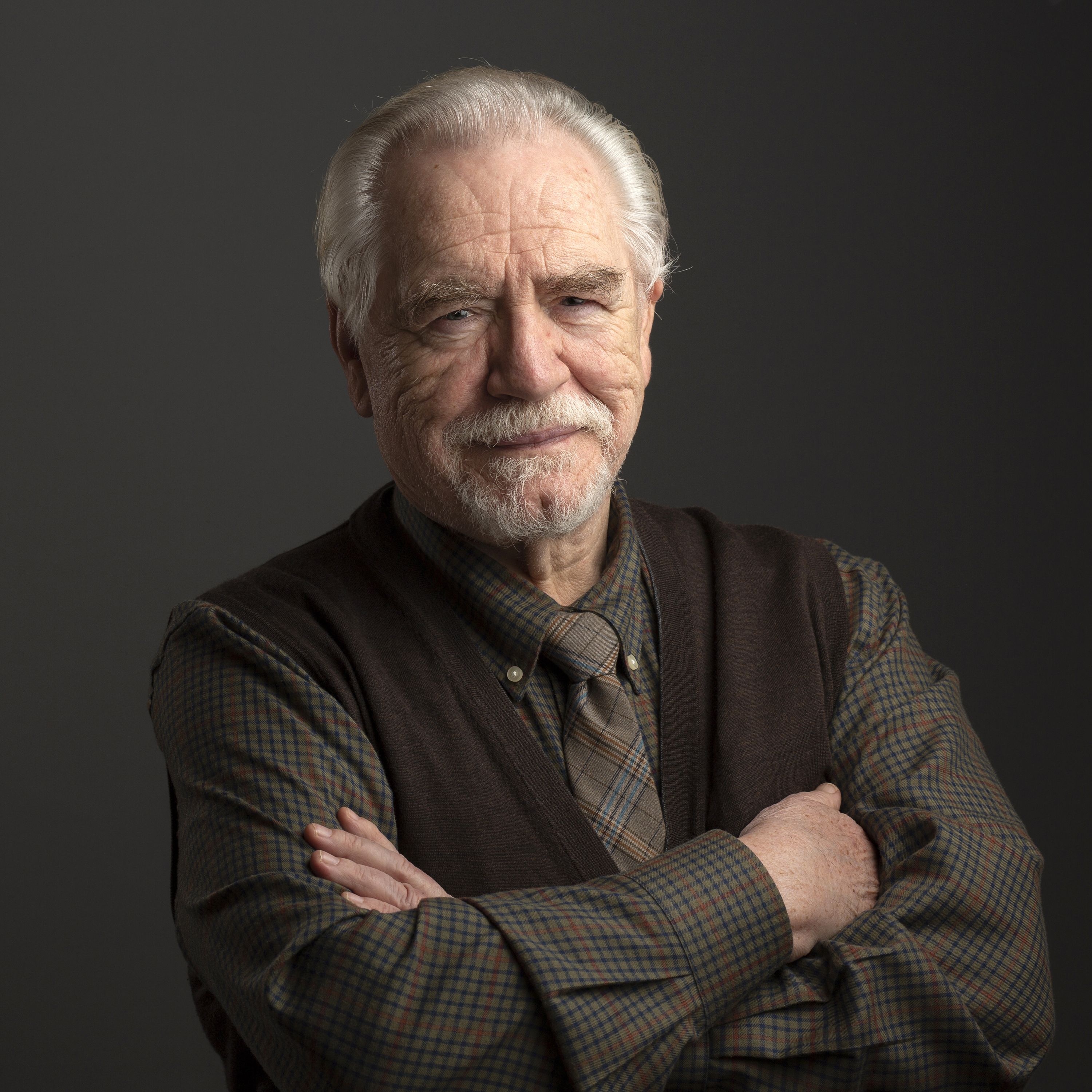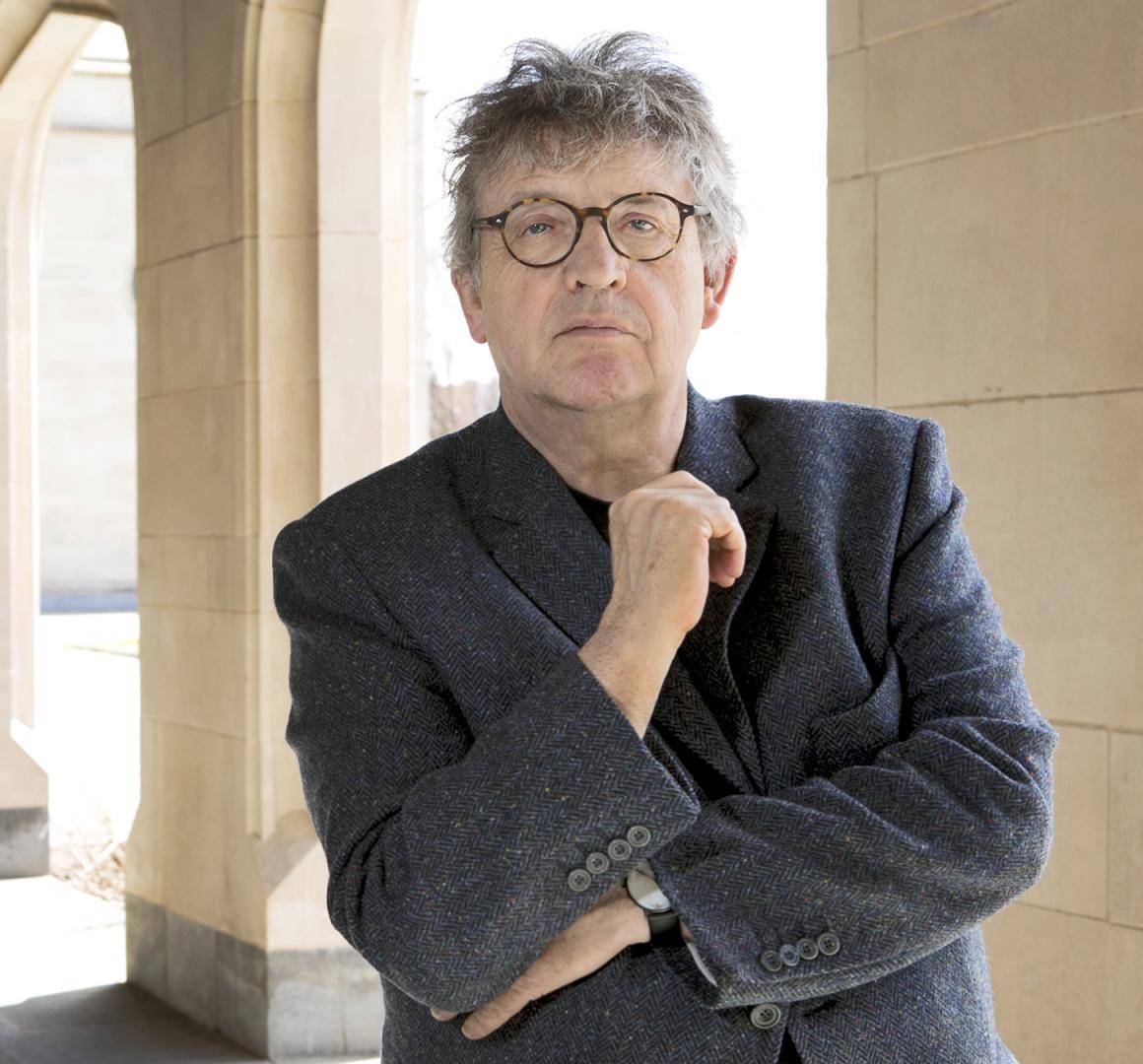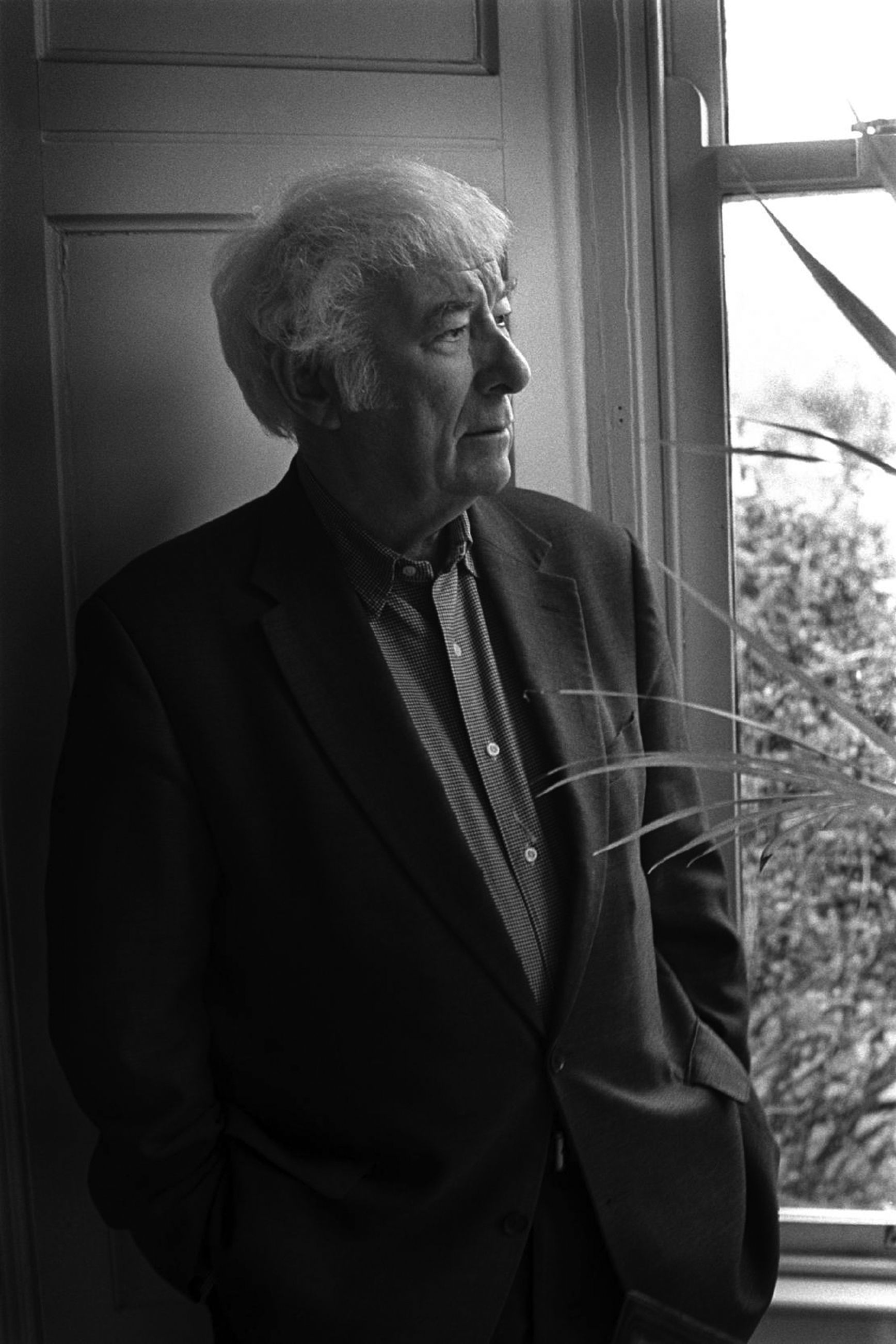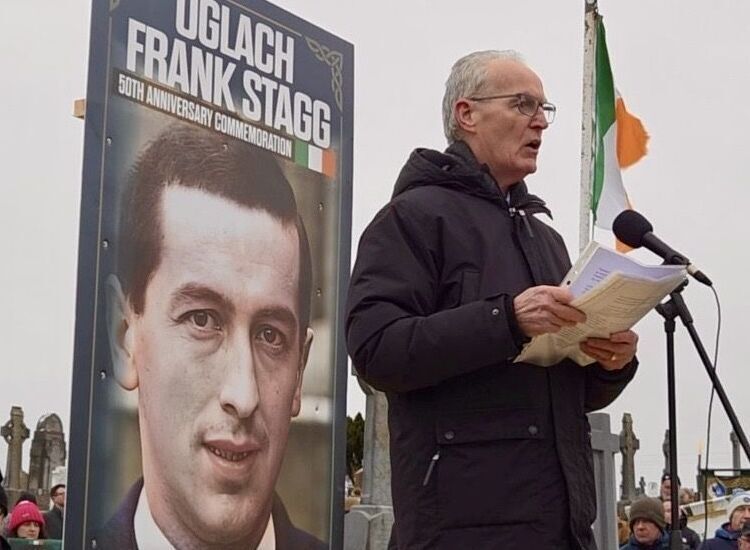Paul Muldoon was driving along a Manhattan street one Saturday morning years ago when a yellow cab pulled out in front of him. “Very abruptly, the way they do,” he said.
He sounded his horn in protest, and then both cars went their separate ways. That evening, Muldoon met fellow poet Seamus Heaney for dinner in a restaurant.
“He came up to me and said, ‘Were you driving through West 24th Street at about 11 o’clock this morning?’ I said, ‘I was, yeah.’ And he said, ‘Well, that was me in the cab.’
“You can’t make that stuff up,” Muldoon said of his near collision with a vehicle ferrying a friend. “Of all the gin joints, as it were.
“We were thrown together in many circumstances over the years,” he said of Heaney, who died in 2013. “There was a strong connection there.”
Muldoon will pay homage to his early mentor and friend next Monday evening alongside other admirers, the actor Brian Cox among them, in “A Tribute to Seamus Heaney” at 92nd Street Y. (The actor Ruth Negga, who was previously advertised, has had to cancel.) The occasion is next week’s publication of “The Poems of Seamus Heaney,” which collects the entire work of a poet who won the Nobel Prize for Literature in 1995 "for works of lyrical beauty and ethical depth, which exalt everyday miracles and the living past.”

Brian Cox will be among the admirers participating in "A Tribute to Seamus Heaney" at 92nd Street Y on Monday evening.
Muldoon first met Heaney and another leading poet, Michael Longley, at an event in Armagh in April 1968.
“That was a big day,” he said.
Heaney turned just 29 that month, but his debut collection, “Death of a Naturalist,” had “made quite a splash — he was well-known in the poetry business.”
Muldoon was still 16, with his next birthday two months away. “I was introduced to him by one of my teachers,” he said.
In Dennis O’Driscoll’s “Stepping Stones: Interviews with Seamus Heaney,” the County Derry-born poet recalled that “Paul — as you would expect — was quiet, like any schoolboy being introduced by a master, but there was nothing schoolboyish about the poems he eventually sent me.”
He continued, “There such a sureness of voice and distinctness of imagining, you were at home and away with the poems immediately. They belonged completely in the world of Armagh and in the world of the imagined. I considered myself lucky to have encouraged them and had a real sense of occasion when I published them.” He was at the time serving as guest editor of Threshold, a publication connected to the Lyric Theatre in Belfast.

Paul Muldoon’s meeting with Seamus Heaney in 1968 began a 45-year friendship.
Next, he recommended him to Karl Miller, editor of the BBC’s weekly magazine, the Listener. Muldoon remembered that being published in its pages while still a teenager was for him “big news.”
Then, Heaney introduced his work to Charles Monteith, whom Muldoon called “T.S. Eliot’s successor at Faber & Faber.”
“He was the editor who picked William Golding’s ‘Lord of the Flies’ out of the slush pile. He was from Northern Ireland, as it turns out, though you wouldn’t have known it to hear him. He’d a very plummy Oxford accent,” he said.
“So basically, he helped me get off to a pretty good start,” Muldoon said of Heaney.
But the latter told O’Driscoll that “there should be no imputation that I ‘helped him to get published.’ Editors are fighting to be first in the field with a talent like that.’”
When a student at Queen’s University, where Heaney was his tutor, Muldoon became a member of the reconstituted workshop known as the “Belfast Group.” Longley said of an earlier mid-1960s version that gave "an air of seriousness and electricity to the notion of writing.”
Muldoon said, “It was a coming together of quite talented people.”
Longley (who died on Jan. 22 this year), Heaney and several other leading poets were members, but Derek Mahon was not, even though he’s been often mentioned as one.
Muldoon, who attended a five-year memorial event in Dublin for Mahon last week, said, “He lived in London and elsewhere the years it was most active.
“Did we call it the Group? We might have,” he said, although he also suspects that it was used more as a title in the remembering years afterwards.
Muldoon emigrated to the United States in 1987. He taught at Princeton for 35 years, won the Pulitzer Prize for poetry in 2003 and served for a time as editor of the New Yorker.
The friendship with Heaney, a frequent visitor to the U.S. as a guest lecturer and for periods as a college teacher, was maintained “right the way through.”
Muldoon said, “It was not necessarily all that close on a day-to-day basis. He was a busy man. I know a number of busy men and one of the things about them is you don’t want to be bothering them. You don’t want to be adding to the burden.”
He referred to the Nobel laureate as a “decent fella” and a “down to earth fella, as befits a poet who specialized in earthiness.”
Muldoon said, “If you start taking yourself seriously, you’ve had it.”
While fame can “take its toll” for some, most famous people are also “just quite ordinary people — why wouldn’t they be?”
Heaney was, of course, a much sought-after attraction; he spoke at Monday's venue, the 92nd Street Y, on 11 occasions, the first being in 1971 and the last 2011.
“He was a good reader,” Muldoon said. “He read his poems very effectively.
“Reading a poem aloud is one of a number of ways of critiquing a poem, you’re explicating the text, as it were, by reading it aloud, making it clear, putting the right emphasis here and there.
“One has more of a sense of responsibility, oddly enough, reading other people’s poems,” he added. “If you mess up your own, it doesn’t really matter.”
With someone else’s, Muldoon said, “you want to do as well by the poem and the poet as you possibly can.”
In addition to Muldoon and Cox, “A Tribute to Seamus Heaney” will feature Robert Pinsky, Kevin Young, Mary Jo Salter, Jorie Graham and Peter Sacks. For more information about in-person and streaming tickets, go to 92ny.org.










